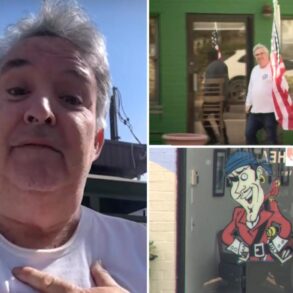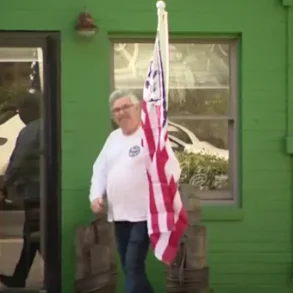Chemical relaxers are hair today, could be clipped soon
 |
| MOHAMED HOHASSID | UNSPLASH |
| The federal Food and Drug Administration has recommended banning chemical-based hair straighteners and relaxers that have long been popular among Black women due to their risk for cancer. |
Some of the most popular beauty products among Black women may soon be off the shelves.
The U.S. Food and Drug Administration wants to ban chemical hair-straightening products, commonly known as relaxers and perms, because of their links to fibroids and cancer – specifically breast, ovarian and uterine.
Formaldehyde, a major ingredient in those products, can lead to short-term effects such as runny nose, headache, difficulty breathing and nausea. Long-term effects include irritation of the respiratory system, eyes, and nose.
Formaldehyde has been classified as a human carcinogen for seven years.
FDA plans to publish proposed regulatory rules by April 2024.
Numerous lawsuits have been filed against major corporations such as L’Oreal, Namaste Laboratories, Strength of Nature, Dabur and SoftSheen Carson with claims of their products causing cancer. So why are they still so popular – and available?
“I think that some hair textures maybe need a little help with maintenance and I wouldn’t say they need a relaxer but like a texturizer just so they can manage it so they can take care of themselves because if you’re not going to a regular stylist and you got all that hair it’s like a lot and you really don’t know what to do,” said Lakesha Hoskins, a licensed hairdresser for 20 years and former instructor.
Researchers suggest using plant-based products as they use fewer and less harmful chemicals. They suggest consumers refrain from using hair products that contain formaldehyde, formalin and methylene glycol. In general, the fewer ingredients, the better – especially those you can’t pronounce.
Aysia Hayes, a certified herbalist since 2019, got her first perm at 5 years old. Her stepmom wanted to attach a hair piece to Hayes’ head for her wedding, but the texture didn’t match, so she took her to a salon. Little girls often get perms to make their hair more manageable, but Hayes’ biological mother was furious when she returned home.
Hoskins’ mom didn’t know how to do hair and decided it’d be easier to keep her hair in plaits if she got it relaxed. When Hoskins grew older and got her license to service hair, she decided to stop getting chemical hair straightening. A doctor she serviced addressed suspicions of chemical effects on the brain, which made sense to Hoskins, who owns Elegant Divaz Hair Salon in Durham.
“When I decided to stop getting them, I was having a little bit of like thinning problems from the chemicals and burns on my scalp,” she said. Hoskins later discovered her scalp developed scarring over the years from burns when she was evaluated by a dermatologist, but she was one of the lucky ones. Some women cut all their hair off when they decide there was no chance to salvage it.
“When I first did my big chop is when I first started to decolonize my mindset around Black hair because I had so many young girls who loved my hair, was praising my hair, my texture, while self-hating their own hair and saying how I could pull it off but it’s not for them and I’m thinking ‘the hair that comes out of your hair is not for you?! What do you mean,’” Hayes said.
Initially, Hayes cried because she thought she looked like a boy but got used to her look over time with the guidance of her mom, Javon Hite. Hite chopped her own hair prior to doing so for her 14-year-old daughter, which Hayes thought was beautiful at the time. It took a lot of attention, care, and accessories for Hayes to learn to appreciate her natural self.
“That’s when I began to deep dive and realize this idea, we have about our hair could not have come from us,” she said. “Our hair is unique. It does things that nobody else’s hair can do, and it represents us. It represents the strength that we have. It represents the power that we have. It represents the ability to bounce back that we have, and I want other people to realize that about their hair too.”
This isn’t the first time the FDA considered a ban on the use of formaldehyde. The proposal did not go through when proposed back in 2016 and there is no guarantee that it will this time around. There isn’t a definite timeline as to when there will be a resolution. The prediction is a verdict will be made sometime next year.
In 2018, WSV-TV reported a study that found 45 asthma-associated and endocrine disrupting chemical ingredients in 18 tested hair products. Eighty-four percent of chemicals detected were not even listed in the ingredients. Some products claim to be formaldehyde free yet produce the chemical when it comes in contact with heat or air.
It only takes four uses in the span of a year to increase the risk of uterine cancer by 50%. According to Hoskins, a maintenance service is recommended every four to six weeks depending on hair texture and density. While some may get serviced monthly, others get do so every eight weeks or even twice a year due to having finer hair or health concerns.
Hayes developed a love-hate relationship with her hair. She loved the way it bounced, shined in the sun and how it flowed in the wind, but the results would only last about two weeks. Hayes wouldn’t commit to getting a perm twice a month because she never enjoyed the experience. The chemicals and hot comb always burned her ears and scalp.

There have been cases where women have suffered severe burns and extreme hair damage due to the harsh chemicals. A client of Hoskins’ was denied a second service after they suffered flaking, swelling and blisters around their ears and hairline a week after service. It was suspected as an allergic reaction.
“I do absolutely think that it was done intentionally,” Hayes said. “I think that they are targeting us because they want us to conform to Eurocentric ideologies of beauty and I can’t get with it.”
Many African American hairstyles and customs – locs, twist, braids, bantu knots, headwraps, etc. – have been deemed as unsuitable for the workplace. Recently, the C.R.O.W.N (Create a Respectful and Open World for Natural hair) Act has been opening conversations to address ethnic hair acceptance. Versions of the legislation have been enacted in several states – including North Carolina in February – and continues to spread.
Although Hoskins encourages others to go natural, she feels the products should not be taken off shelves. Warning labels listing side effects and dangers should be mandatory but to her using the product is a personal choice. Hoskins did not stop providing hair relaxing services when she made the decision to stop getting them herself, but she has found a new passion for natural hair as a loctician.
“I feel as though more people would feel more comfortable wearing their natural hair when our natural hair is more accepted and appreciated by those that don’t understand it,” said Hoskins, whose has worn locs for 16 months now. She does not regret locking her hair and has found a new love for her natural self while helping others along their journey.
Hayes has worn locs for three years after doing the “big chop” four times, twice because perms harmed her hair.
“My natural hair journey has been a major part in me building self-confidence because you can’t hide behind your hair,” she said. “When you do the big chop, you are forced to look at yourself in the mirror and all you see is you, you know? Like your whole face is exposed.”
Comments
This post was originally published on this site be sure to check out more of their content.






